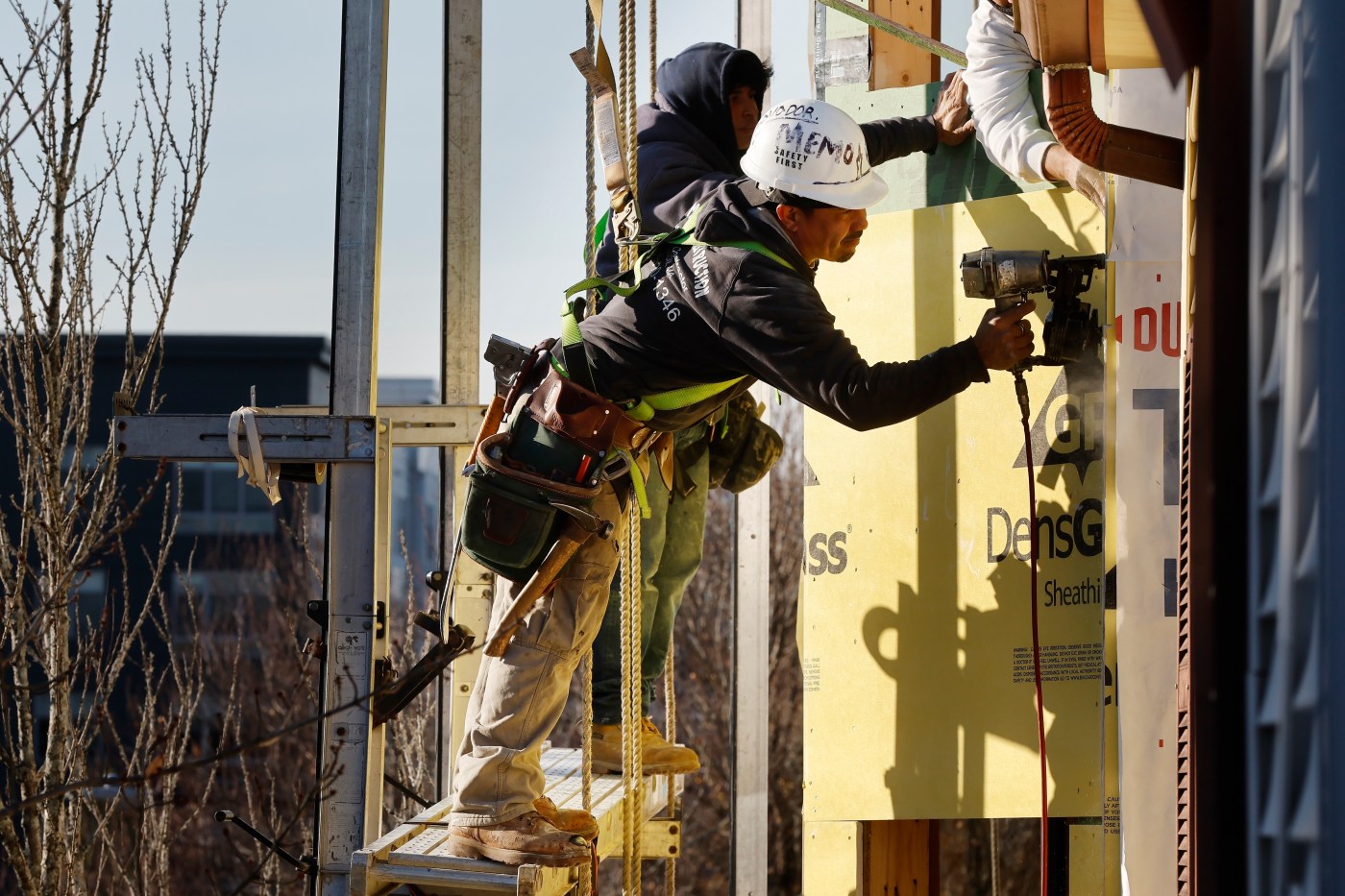
Bay State businesses end year on positive note, mirroring December jobs report
After a year of occasional ambivalence regarding the strength of the economy, the state’s businesses closed 2023 feeling optimistic about the government’s efforts to cool inflation and keep business moving at a “deliberate pace,” according to the Associated Industries of Massachusetts.
AIM’s monthly Business Confidence Index for December shows Bay State employers are seeing signs the Federal Reserve is successfully navigating the nation toward a fabled soft landing, via now paused hikes to their key interest rate.
“Brightening prospects for an economic ‘soft landing’ bolstered confidence among Massachusetts employers as an unpredictable 2023 drew to a close. The Associated Industries of Massachusetts Business Confidence Index gained 1.6 points to 52.6 in December, hitting a nine-month high that left it in optimistic territory at year-end,” the association wrote.
Optimism among Massachusetts business owners to close 2023 comes after 12 months of mostly good sentiments occasionally interrupted by a slight turn towards pessimism. The BCI fell below the 50-point mark in May, June, and September, with May showing the lowest reported confidence level at 49.6 points.
Confidence peaked early in 2023, hitting 53.5 points in February and then sliding toward pessimism through June, when confidence was at 49.7 points. Excepting September’s slump to 49.8 point confidence, the second half of the year showed employers less concerned about the lingering impacts of inflation.
“The good news is that the pace of inflation has slowed noticeably since mid-2022. This should give the Fed some confidence that tighter monetary policy is working without widespread job losses,” Sara Johnson, the chair of AIM’s Board of Economic Advisors, said along with December’s report.
AIM’s year end survey follows last week’s announcement by the Biden Administration that the economy again gained more jobs than forecast in December and, though up slightly from the 3.5% seen at the same time in 2022, unemployment held steady month-over-month at 3.7%.
According to the Bureau of Labor Statistics, “total nonfarm payroll employment increased by 216,000 in December,” with jobs added in the construction, government, health care, and social services sectors, but down among the transportation and warehousing sectors.
In total, the nation saw an average of 225,000 jobs added to the economy each month in 2023, resulting in an additional 2.7 million jobs over the year, down from 4.8 million in 2022.
“The strong job creation continued even as inflation fell to the pre-pandemic level of 2 percent over the last six months, and key prices have fallen over the last year—for a gallon of gas, a gallon of milk, toys, appliances, car rentals, and airline fares. American workers’ wages and wealth are higher now than before the pandemic began, adjusting for inflation,” President Joe Biden said with the release of December’s jobs report.
All of that is good news, but according to AIM President Brooke Thomson, affordability concerns hamper the state’s ability to attract new talent and keep the workers we have.
“Make no mistake, we must continue to prioritize the traditional pillars of economic development like advantageous tax rates, streamlined regulation and efficient permitting. But economic development must also address the soaring cost of everything from housing to childcare to health care, which is driving some of our best and brightest employees to less expensive regions of the country,” Thomson said.
AIM surveys more than 140 Bay State businesses to produce their monthly index, the first of which was published in July of 1991. According to AIM, business confidence hit historic highs in 1997 and 1998, with two months in either year reaching 68.5 points, and hit a low in February of 2009, when it was 33.3 points.
A worker handles labels at an Amazon same-day delivery shipping center in Woodland Park, N.J., last month. The nation’s employers added a robust 216,000 jobs in December, the latest sign that the American labor market remains resilient even in the face of sharply higher interest rates. (AP Photo/Ted Shaffrey, file)

